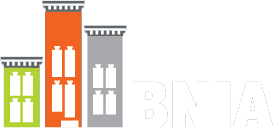How can you get involved?
Nominate a dataset you would like to see hosted on Open Baltimore
Sign up to stay connected to the Open Data group with BNIA-JFI
Join any of the Code for Baltimore Meetups and Slack channels
Baltimore Mayor Catherine E. Pugh has announced an initiative in partnership with the University of Baltimore and the Baltimore Neighborhood Indicators Alliance (BNIA) to enhance information sharing and data accessibility on the Open Baltimore Data Portal.
Mayor Pugh’s vision for open data begins with input from BNIA, which will host a gathering of community stakeholders external to the City of Baltimore. These members of the community are experts in data gathering and distribution; power users of open data, including, civic-minded hackers, and open-data proponents, who are also working toward economic and community development using open data. BNIA will harness these suggestions to provide outside feedback on the prioritization of data that could be analyzed and presented more effectively to help answer Baltimore’s critical short- and long-term needs.
“With the growing number of public, private and community-based stakeholders relying on the availability of open data in Baltimore, the time is now to build a coalition to advocate for and provide feedback to the development of this information,” said Mayor Pugh. “Our aim is greater transparency in government operations, data-informed public-sector decision-making and private-sector economic innovation.”
At UB, the effort will be guided by Seema D. Iyer, associate director of the Jacob France Institute and leader of a long-term open data project, the Baltimore Neighborhood Indicators Alliance. The group, a project within the University’s Jacob France Institute, recently released the 15th annual Vital Signs report, a comprehensive compilation of open and other data about Baltimore’s neighborhoods—real property, green space, crime, etc.—which encourages communities to track key indicators on quality of life.
“As a user and provider of open data in Baltimore, we understand that data is most useful when there are people who know why it’s there and how to use the information to affect change,” Iyer said. “The more we build a broad-based community around open data and learn how to maximize its civic value together, the more we can be true partners in 21st century urban governance.”
The Mayor’s Office of Information Technology will then be able to enhance data-informed decision-making after hearing BNIA’s recommendations. This will assist the City in carrying forward the progress it has made with its most recently launched tech-enabled solutions, including the Department of Public Works’ Online Water Billing, Department of Housing and Community Development’s E-Permitting System.
Mayor Pugh said she is encouraged by the benefits of fostering innovation within government, and believes it will help create more transparency in decision-making, as well as the data collection process itself.
Read more about the Open Baltimore Data Portal in Technical.ly Baltimore.



